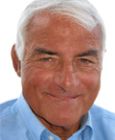Child Development
No Child Left Undiagnosed
The latest ploy to make childhood a disease
Posted April 12, 2014
"Sluggish Cognitive Tempo" may possibly be the very dumbest and most dangerous diagnostic idea I have ever encountered.
And I have seen some beauts during my 40 years of shooting down crazy new diagnostic dream lists. The wild suggestions are usually created by "experts" brim full with diagnostic exuberance-- sometimes well meaning, sometimes influenced by extensive drug company affiliations--and always ungoverned by simple common sense, a respect for scientific evidence, and an appropriate fear of risky unintended consequences.
Alan Schwarz is a brilliant investigative reporter for The New York Times who has dug deep into the fake epidemic of Attention Deficit Disorder. If anyone in your family has been diagnosed with ADHD, you should definitely Google his revealing series of reports detailing the how's and why's of ADHD misdiagnosis and the consequent harms of over-medicating our kids with stimulant drugs.
In today's New York Times, Schwarz reports on the latest bizarre twist. The very same experts who succeeded in promoting ADHD have now concocted and are promoting a new diagnosis that would be a terrific bonanza for pharmaceuticals, but terrible for the kids who would be misdiagnosed and over-treated. (nytimes.com/idea-of-new-attention-disorder-spurs-research-and-debate)
Sluggish Cognitive Tempo is a remarkably silly name for an even sillier proposal. Its main characteristics are vaguely described but include some combination daydreaming, lethargy, and slow mental processing. Its proponents estimate that SCT afflicts approximately 2 million children. Not surprisingly, Eli Lilly is already on the case.
The Journal of Abnormal Child Psychology is also taking all this very seriously. SCT is featured in 136 pages of its January issue. Included are claims that the question of its existence “seems to be laid to rest as of this issue” and that SCT is gaining momentum toward recognition as a legitimate disorder.
However ludicrous SCT may seem, the risk it may do great harm is real. Child psychology/psychiatry/pediatrics/family medicine have become fevered fields of diagnostic excess, pharmaceutical manipulation, and careless medication prescription. In just 20 years, rates of ADHD have tripled and Autism and childhood Bipolar Disorder have increased 40-fold.
A prospective study using DSM-IV found that by age 21, 81 percent of kids had already qualified for one diagnosis of mental disorder. DSM-5 recently made things much worse when it turned normal temper tantrums into Disruptive Mood Dysregulation Disorder. The last thing our kids need is to be misdiagnosed with Sluggish Cognitive Tempo and bathed in even more stimulant meds.
Alice, trapped in Wonderland, has this instructive conversation with the Cheshire Cat:
Alice: But I don't want to go among mad people.
The Cat: Oh, you can't help that. We're all mad here. I'm mad. You're mad.
Alice: How do you know I'm mad?
The Cat: You must be. Or you wouldn't have come here."
Egged on by well meaning (and not so well meaning) experts and by greedy drug companies, we are fast approaching this dystopic wonderland of universal childhood mental illness. I would be in despair were it not for my belief that diagnostic exuberance has overplayed its hand and is ripe for a very big humpty-dumpty type fall. More on this in my next blog.


